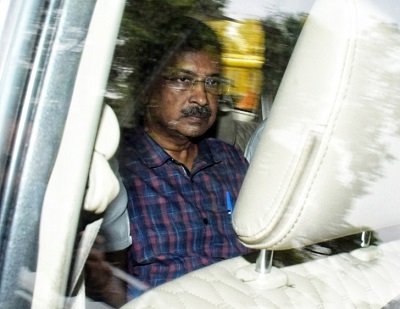New Delhi, (Asian independent) The Delhi High Court, which on Tuesday dismissed Chief Minister Arvind Kejriwal’s petition challenging his arrest by the ED and the trial court order sending him to the agency’s custody, held that judges, “as custodians of justice, are bound by the law and not by political considerations” and cannot adjudicate “political matters”.
Justice Swarana Kanta Sharma, who heard the case, noted the ED’s submission that they were in possession of enough material to arrest Kejriwal.
As senior advocate Abhishek Manu Singhvi, appearing for Kejriwal, argued that the arrest made by the ED was mala fide, and made at the time of elections, thereby seriously compromising free and fair elections and thus, also affecting democracy which, in turn, is ‘basic structure’ of the Constitution of India, the court responded: “… the courts of law are one of the pillars of democracy. Judges, as custodians of justice, are bound by the law and not by political considerations.”
” … this Court notes that the judiciary is tasked with interpreting laws and adjudicating matters before it based on the existing laws and precedents alone, rather than the political considerations.”
Justice Sharma’s verdict stated that while politics may influence governance, it is not the purview of the courts to adjudicate “political matters”. “Instead, the judiciary remains steadfast in its commitment to the principles of law and justice, independent of political considerations,” it said.
The judgement’s main crux being that political factors or dynamics should not and have never influenced the court’s deliberations or decision-making process, Justice Sharma ruled that the matter is not a conflict between the Central government and Kejriwal, but between Kejriwal and the ED.
“In such legal proceedings, it is crucial for the court to maintain its focus solely on the legal merits of the case,” the judge noted, adding that the issue before this court does not concern two political parties but an investigating agency on one hand and an alleged accused who happens to be a Chief Minister on the other.
The judge observed that the courts have been, and are better left untouched by political influences or interference, and their only and sole responsibility and duty is the application of a law enacted by the Parliament which is the will of the people.
“When adjudicating legal disputes, the Courts are duty-bound to interpret laws and assess the actions of investigating agencies in alignment with constitutional and legal norms, irrespective of political considerations,” her judgement read.
The judge stated that the arrest of Kejriwal was not in contravention of the law laid down by the Supreme Court in the case of Pankaj Bansal in respect of Section 19 of the PMLA. She said that the trial court’s order dated March 22, which had sent Kejriwal to ED’s custody, does not suffer from any infirmity or illegality.
Section 19 of the PMLA provides that the officer arresting an individual must have some “material in his possession” on the basis of which the officer should have a “reason to believe” that the person being so arrested is “guilty” of an offence punishable under PMLA.
The agency has said that it complied with all procedural requirements of Section 19(1) and (2) of the PMLA as well as Article 22(1) and (2) of the Constitution of India during the arrest and remand of CM Kejriwal.
The agency has claimed that the AAP leader was the kingpin and key conspirator of the Delhi excise scam in collusion with ministers of the Delhi government, AAP leaders and other persons and that it has material in possession which demonstrates that he is guilty of the offence of money laundering.
The ED has also alleged that CM Kejriwal was directly involved in the formulation of the Excise Policy 2021-22, drafted “considering the favours to be granted to the South Group” and that he demanded kickbacks from the South Group in exchange for favours to them in the formulation and implementation of the Excise Policy 2021-22.









